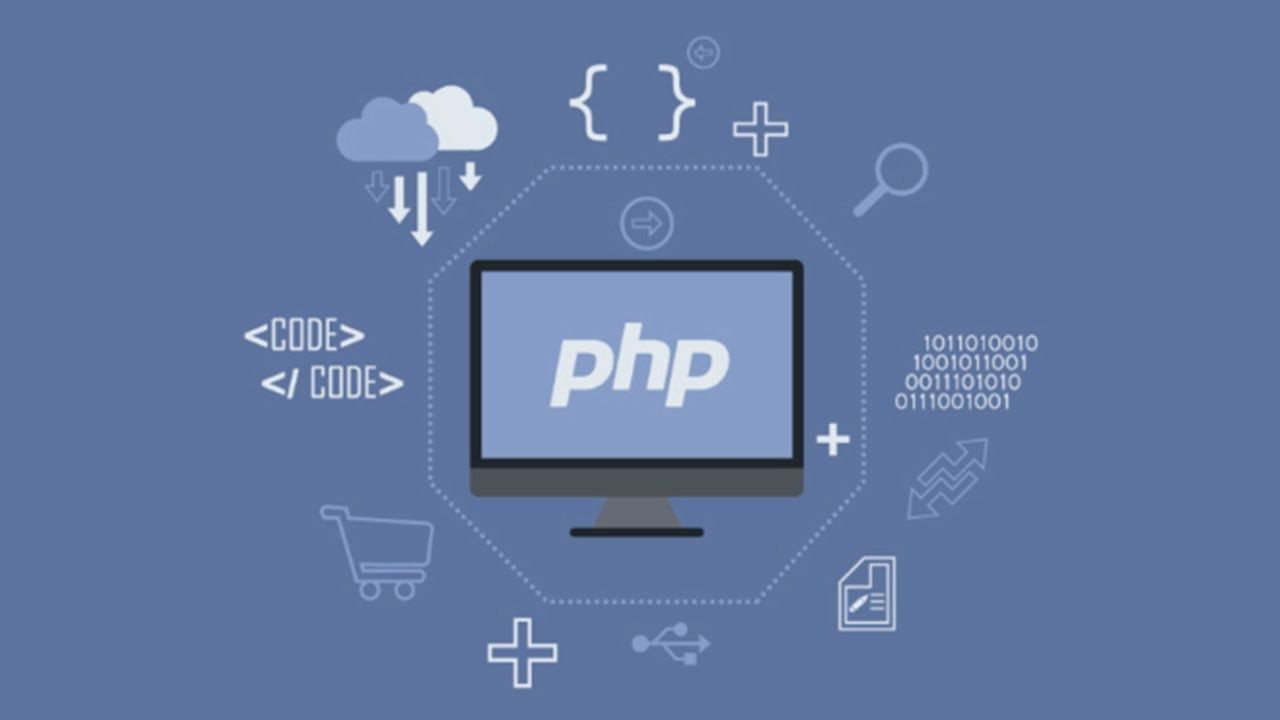What is PHP?
PHP, which stands for “Hypertext Preprocessor” (originally “Personal Home Page”), is a widely-used open-source server-side scripting language, PHP Hosting. It is specifically designed for web development but can also be used for general-purpose programming. PHP scripts are executed on the web server, and the output is typically HTML content that is sent to the client’s web browser. This enables the creation of dynamic web pages and web applications.

Here are some key points about PHP
- Server-Side Scripting
PHP is primarily used for server-side scripting, which means it runs on the web server rather than in the client’s browser. This allows for the generation of dynamic content, interaction with databases, and other server-side tasks.
- Open Source
PHP is open-source software, which means it is freely available for anyone to use, modify, and distribute. It has a large and active community of developers who contribute to its development and create a wide range of extensions and libraries.
- Cross-Platform Compatibility
PHP can run on various operating systems, including Windows, macOS, Linux, and Unix, making it a versatile choice for web development across different platforms.
- Integration with Databases
PHP can easily integrate with many popular databases, including MySQL, PostgreSQL, SQLite, and others. This makes it suitable for building database-driven web applications.
- Ease of Learning
PHP has a relatively simple and intuitive syntax, making it accessible to beginners. Its syntax is similar to C, Java, and other programming languages, which can make it easier for developers to pick up.
- Extensive Library Support
PHP comes with a vast standard library that includes functions and modules for various tasks. Additionally, there are many third-party libraries and frameworks available to extend PHP’s capabilities.
- Web Frameworks
There are several popular PHP web frameworks like Laravel, Symfony, CodeIgniter, and Yii that simplify the process of building web applications by providing pre-built components and a structured development environment.
- Content Management Systems (CMS)
PHP is the foundation for numerous content management systems like WordPress, Joomla, and Drupal, which are widely used for creating websites and blogs.
- Highly Customizable
PHP allows developers to create custom extensions and modules to add specific functionalities to their applications. This extensibility makes it adaptable to a wide range of use cases.
Why use PHP?
- Ease of Learning and Use
PHP has a relatively simple and straightforward syntax that is easy for beginners to pick up. Its syntax is similar to other programming languages like C, Java, and Perl, which makes it accessible to a broad range of developers.
- Open Source
PHP is open-source software, which means it is freely available for anyone to use, modify, and distribute. This makes it a cost-effective choice for web development projects, as you don’t need to pay for licenses.
- Cross-Platform Compatibility
PHP can run on various operating systems, including Windows, macOS, Linux, and Unix. This cross-platform compatibility allows developers to work with their preferred environment.
- Integration with Databases
PHP seamlessly integrates with a wide range of databases, such as MySQL, PostgreSQL, SQLite, and more. This makes it suitable for developing dynamic web applications that interact with data.
- Vast Community and Resources
PHP has a large and active community of developers and a wealth of online resources, including documentation, tutorials, forums, and libraries. This community support can be invaluable when facing challenges in your development projects.
- Web Frameworks
PHP offers a variety of powerful web frameworks like Laravel, Symfony, CodeIgniter, and Yii, which provide pre-built components and follow best practices, making web development faster and more efficient.
- Content Management Systems (CMS)
PHP is the foundation for many popular content management systems, such as WordPress, Joomla, and Drupal. These CMS platforms make it easy to create and manage websites and blogs without extensive coding.
- High Performance
PHP has improved its performance over the years, especially in recent versions. When used with a suitable web server like Apache or Nginx, PHP can handle high traffic websites efficiently.
- Security Features
PHP includes various security features and functions for data encryption, input validation, and session management. While security depends on proper coding practices, PHP provides tools to build secure applications.
- Extensibility
PHP allows developers to create custom extensions in C or use pre-built extensions available in the PHP ecosystem. This extensibility makes it adaptable to a wide range of use cases.
Features of PHP

- Server-Side Scripting
PHP is primarily designed for server-side scripting, meaning it runs on the web server and generates dynamic HTML content. This allows developers to create interactive and data-driven web applications.
- Open Source
PHP is open-source and freely available to anyone. Developers can use, modify, and distribute PHP without licensing fees, making it cost-effective for web development projects.
- Cross-Platform Compatibility
PHP is compatible with various operating systems, including Windows, macOS, Linux, and Unix. This cross-platform support allows developers to choose their preferred development environment.
- Database Integration
PHP can seamlessly connect to numerous databases, such as MySQL, PostgreSQL, SQLite, and more. This feature is crucial for building web applications that store and retrieve data.
- Ease of Learning
PHP has a relatively simple and intuitive syntax, making it accessible to beginners. Its syntax is similar to other C-style languages, which helps developers transition from other programming languages more easily.
- Extensive Library Support
PHP comes with a comprehensive standard library that includes functions and modules for various tasks, such as file handling, regular expressions, and more. Additionally, there are numerous third-party libraries and extensions available.
- Web Frameworks
PHP boasts several popular web frameworks, including Laravel, Symfony, CodeIgniter, and Yii. These frameworks provide a structured and efficient way to develop web applications by offering pre-built components and following best practices.
- Content Management Systems (CMS)
PHP serves as the foundation for many widely-used content management systems like WordPress, Joomla, and Drupal. These CMS platforms simplify website creation and management without extensive coding.
- High Performance
PHP has improved its performance in recent versions, especially when used with web servers like Apache and Nginx. It can efficiently handle high-traffic websites and applications.
- Security Features
PHP offers various security features and functions to help developers build secure applications. This includes data encryption, input validation, and session management. However, it’s crucial to follow best security practices.
Conclusion
In conclusion, PHP (Hypertext Preprocessor) is a powerful server-side scripting language that has played a significant role in web development for decades. Its popularity is rooted in a combination of key features that make it a valuable choice for developers and organizations
FAQS
1.Is PHP still relevant in 2023?
Yes, PHP is still relevant in 2023, and it continues to be used for web development. Many popular websites and web applications are built using PHP, and there is a substantial community of PHP developers and resources available.
2.What are some alternatives to PHP for web development?
Some alternatives to PHP for web development include Python (with frameworks like Django and Flask), Ruby (with Ruby on Rails), Node.js, Java (with Spring Framework), and ASP.NET (with C#).
3.Can PHP be used for purposes other than web development?
While PHP is primarily used for web development, it can also be used for general-purpose scripting. You can write command-line scripts and perform various server-side tasks using PHP.
4.Which PHP framework is the best for web development?
The choice of the best PHP framework depends on your specific project requirements. Some popular PHP frameworks include Laravel, Symfony, CodeIgniter, and Yii. Laravel, in particular, is known for its robust features and developer-friendly syntax.
5.Is PHP secure for web development?
PHP can be secure for web development, but security largely depends on how the code is written and maintained. It’s essential to follow best practices, use input validation, avoid SQL injection, and keep PHP and its libraries updated to ensure security.

